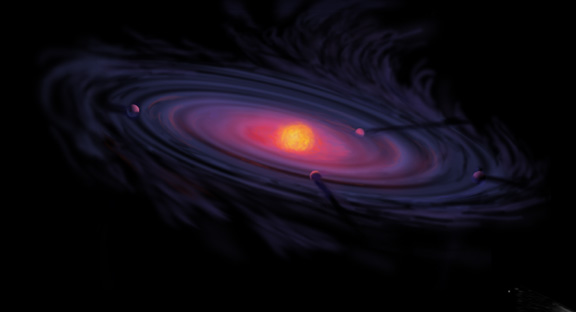
Some time about 4.6 billion years ago, our solar system began forming from a large cloud of dust and gas. In the Cosmic Calendar, that corresponds to today. So ... happy Solar System Day, everybody!
Next up ... birth of the Earth.
References used:
[1] The Wikipedia article on the Formation and evolution of the Solar System reports the cloud from which it formed starting to collapse about 4.6 billion years ago. That's also where I got the pretty picture, which is a public-domain depiction courtesy of NASA.
[2] The Natural History Museum reports an age of 4.5 billion years - slightly different (two days later in the Cosmic calendar). As the formation of the solar system probably took some time, any specific moment chosen as its "formation date" (birthday?) will be somewhat arbitrary.



